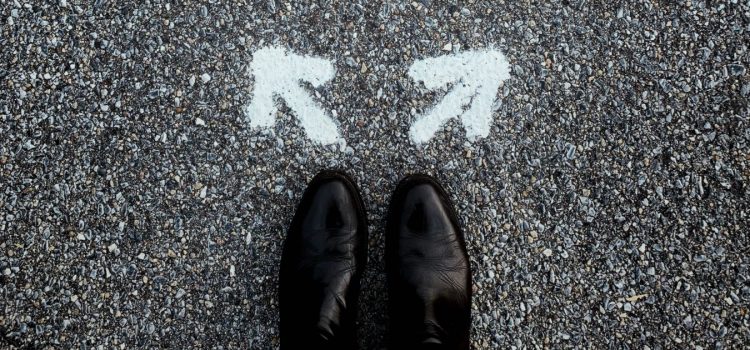
Whenever you eat ice cream, is it simply because you choose to? Or, is it the result of a complex series of physical processes beyond your control? Is free will an illusion?
Sam Harris writes that we believe in free will, not because it makes logical sense, but because it squares with our intuitions and feelings. He contends that our gut is wrong and that free agency doesn’t actually exist.
Read more to understand why Harris believes that free will is an illusion.
Free Will Is an Illusion
Like other determinists, Harris believes that what we feel about our agency misleads us. What we experience when we’re thinking about a decision doesn’t indicate the true causes of our thoughts and actions. You might feel that what you think consciously—for example, the train of thought that seems to lead you to decide to work on a report rather than go to the movies—causes your decision. But, Harris contends that the chain of events responsible for that decision is actually a separate set of processes in your brain and that the subjective experience of free will is an illusion.
| What Does It Mean for Free Will to Be an “Illusion”? The idea that free will is an illusion isn’t new. But what exactly does it mean that our subjective experience of free will doesn’t line up with reality? Psychologist Michael Clayton explains that Harris’s ideas are compatible with those of B. F. Skinner, who argued that free will isn’t real and that our actions are a result of conditioning. Skinner argued that we often mistakenly believe that feelings—like freedom—are causes of our behavior because they occur at the same time. But in reality, the feeling of freedom doesn’t cause the behavior. Some scientists characterize free will as a self-deception on the part of the brain. They explain that the experience of making a choice is just an illusion that your brain constructs after the decision is made. While it seems like the conscious process of choosing precedes the choice, the order of these events may really be reversed. In other words, your brain tricks you into thinking that you’re making a decision, but it’s already made the decision before you’re conscious of it. |
In explaining his position on free will, Harris writes that careful scrutiny of our thoughts and choices reveals two important insights—and both of them expose free will as an illusion. We’ll look at these two insights next.
All of Our Choices Emerge From “Prior Causes”
The first insight that reveals free will as an illusion, according to Harris, is that our thoughts and intentions emerge from what he calls “prior causes.” This means that, even though you think that you’re in control of your thoughts and actions—and you think that there is a “you” involved in these processes—it’s actually your brain that’s responsible not only for what you do and what you think, but also for your subjective sense that “you” are an autonomous self who can think or act independently of what your brain is doing.
Harris writes that the unconscious processes that occur in your brain and determine your thoughts are influenced by things that happened prior to the present moment, outside of your control and consciousness. (For example, when you’re shopping for groceries, you might think that you’re choosing a cereal freely and deliberately. But factors like the ads you’ve seen, the cereals you ate as a child, the taste preferences you inherited from your parents, articles you’ve read about nutrition, the colors of the boxes, and so on direct what your brain is doing as it makes the decision.) Harris contends that a system where your thoughts and actions are determined outside of your consciousness and control is not compatible with free will.
| Are “Prior Causes” the Whole Story? While Harris considers the influence of past events—what he calls “prior causes”—a nail in the coffin for free will, not every expert agrees with that interpretation. John Horgan (who argues in The End of War that we have free will) agrees with Harris that your choices are constrained by factors like your genetics, childhood, education, and environment. But Horgan writes that the fact that our choices are constrained doesn’t mean that our choices are non-existent, as Harris argues. (In other words, acknowledging that we don’t have absolute freedom doesn’t require us to assume that we have no freedom at all.) Horgan contends that the role of prior causes isn’t as simple as Harris makes it sound. He points out that the physical processes that Harris considers the definitive cause of our thoughts and decisions give rise to phenomena—like the mind or consciousness—that can’t be satisfactorily explained solely in terms of physical processes. Horgan isn’t convinced by Harris’s position that effectively assumes that because science hasn’t figured out the complexities of free will, then free will must be illusory. Similarly, philosopher Eddy Nahmias—in a piece disagreeing with the ideas of Harris, psychologist Daniel Wegner, and neuroscientist Patrick Haggard, who all consider free will an illusion—points out that science figures out unexplained phenomena piece by piece, without jumping to the conclusion that those pieces won’t be revealed to combine into a whole. Nahmias contends that there’s no reason to define free will, as Harris does, in a way that cuts off progress toward explaining consciousness and thinking. Nahmias’s hope is that scientists will discover how free will works—but, he says, that will never happen if they dismiss the idea altogether. |
Our Choices Are Determined by the Laws of Nature, Including Chance
A second insight that reveals the illusory nature of free will is the idea that our thoughts and intentions occur as a result of the laws of nature, including chance. Harris explains that the brain is a physical system that is subject to the laws of nature. The brain reacts to physical stimuli and processes—including things that happen by chance within our own bodies, like the random firing of synapses—and then it produces impulses that we interpret as our own desires and decisions.
For example, if you’re walking in the park and feel hungry, you might make what feels like a conscious choice to buy an ice cream cone. But, Harris would argue this is just the result of physical processes: Your brain determines that you feel hungry, interprets sensory information like the sight of the ice cream truck, accesses memories, releases chemicals in response to the anticipation of eating an ice cream cone, and weighs factors like your budget and diet.
(Shortform note: A controversial explanation for the idea that our thoughts and intentions are produced by physical events is a theory called epiphenomenalism. It proposes that our conscious experiences and thoughts are “epiphenomena,” or byproducts of physical events in the brain, and they can’t cause or influence our actions or decisions. This has consequences for the idea of free will: Since mental events have no causal power, in this view, our actions are entirely caused by physical events that themselves aren’t affected by our thoughts or decisions. Philosopher Jonny Thomson characterizes this as a particularly distressing point of view because it implies that our thoughts and feelings serve no purpose.)
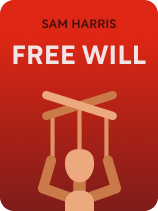
———End of Preview———
Like what you just read? Read the rest of the world's best book summary and analysis of Sam Harris's "Free Will" at Shortform.
Here's what you'll find in our full Free Will summary:
- That free will is an illusion that you should abandon altogether
- How our thoughts, feelings, and desires are caused by outside influences
- Why putting effort into decisions matters, even if they're predetermined

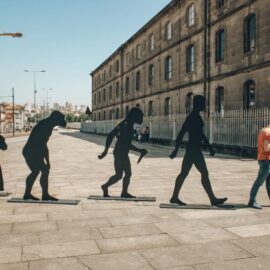

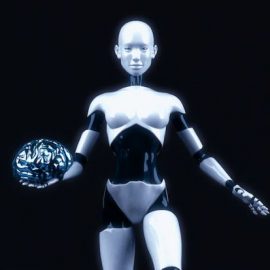

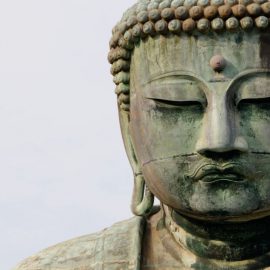

This explanation was clear to the point. Now I see Free Will as an Illusion.
Thank you for such a great site.
This is interesting.
👍👍